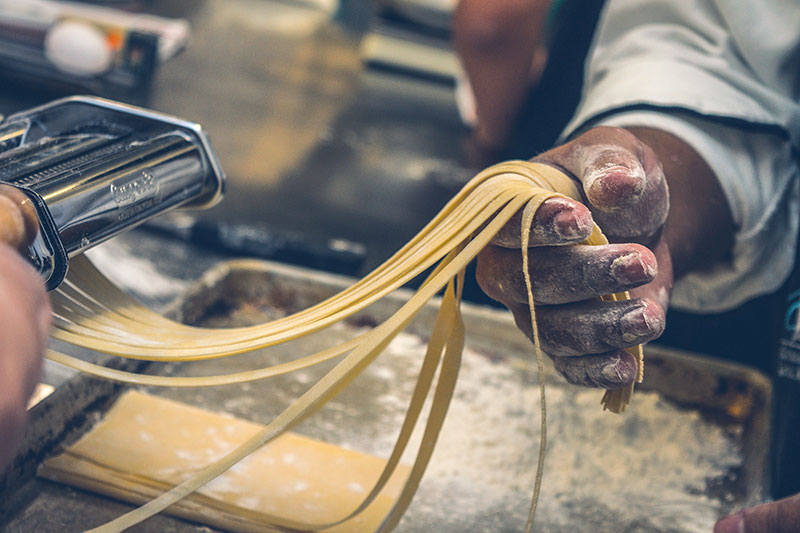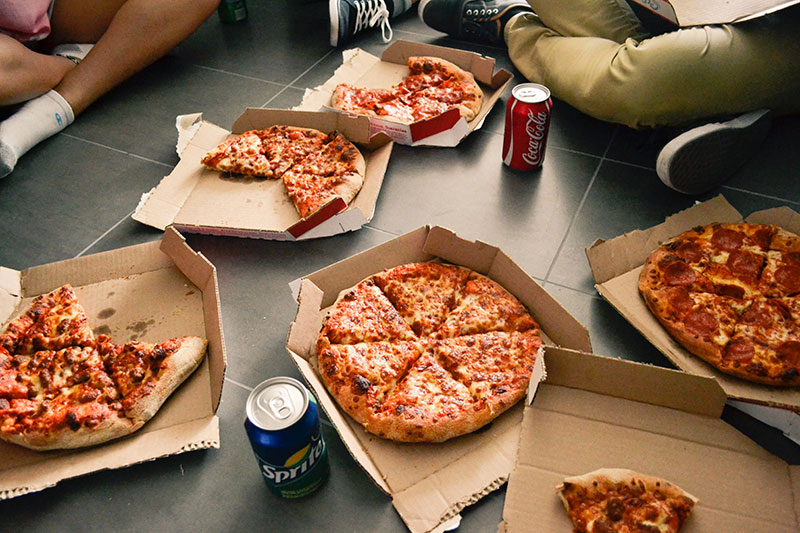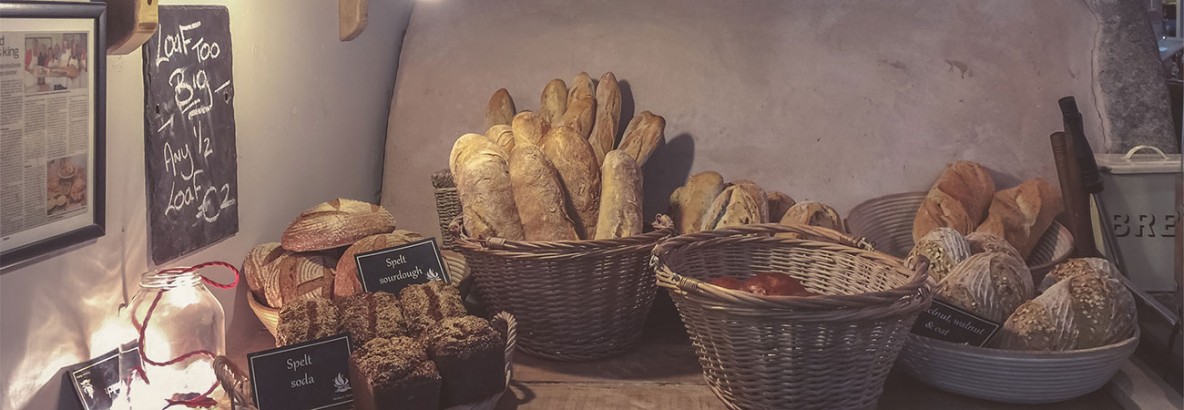Respect the Recipe.
There have been many occasions, both on this blog and in my real, physical existence, where I’ve managed to work myself into a contorted fit of rage over inappropriate recipe modification of certain traditional dishes. I have enormous respect for time honoured, traditional recipes, the amazing dishes and techniques which have been handed down through time for each generation to enjoy. Often based in simplicity, or invoking a fundamental technique of a certain culture’s cooking practice, these recipes are social icons, they have ubiquitous names and often represent entire avenues of cuisine.
It took a while before I fully vocalised this point of view. At first I was merrily jumping on the food blogger bandwagon, happily latching on to any name that I thought were fit for purpose with the recipe I had just published. Little did I realise that I was simultaneously contributing to the decline of civilisation as we know it.
That might seem like a wild overstatement; surely some of these old, historic recipes are vague in the outset anyway and subject to individual interpretations. One could also argue that the contemporary development and modification of traditional recipes is an intrinsic part of our modern foodie history, similar to the way a language develops over time. However, one could also argue that historic recipes should be fiercely protected and preserved so that we can refer back to them and understand the bygone times of our world, in their original state.
After a deep, prolonged philosophical and existential struggle, I fell on the side of being a culinary preservationist, if such a thing exists. In a one-man struggle to protect our culinary history, I dress up at night in my skintight bat-suit and creep out into the internet, fighting back against those recipes which betray our collective cultural intelligence. I understand there’s a need for people to adapt recipes in certain ways, such as catering for dietary requirements, to help people experience the full breadth of tastes in this world. However, there’s also a fine line to tread between modification, diversification and simply put, the bastardisation of recipes.
To make this clearer, I’ve broken it down into three distinct categories:
Recipe Modification.
Modification is the creative embodiment of progressive cuisine. It involves taking ideas, recipes or foods and modifying them to create something different and new. In this respect the author is not trying to recreate the original inspiration, but to develop it into something different, something new, something changed. This is an eye on the future, the development of where we have been, taking us where we are going. I see modifying as somebody taking inspiration from an idea that already exists and making it their own, changing it.
All ingredients that we eat exist in the world and have done for quite some time, so almost all recipes are merely modifications of ones that have gone before. As in music, it is claimed that nothing is new, however that doesn’t mean that nothing is great, far from it. In food, there is ample room for greatness to be achieved and one shouldn’t be confused by the words great and complex, because they do not go hand in hand.
Therefore, recipe modification is taking inspiration from others and history, then putting an individual spin on it and owning it, making it yours. As a quasi-life-lesson, this is an important point. Owning personal opinions is highly important to development as an individual, because happiness is not found whilst living someone else’s life. By all means, learn from others, but the temptation is all too great to piggy back their opinions, which saves the soul searching involved in formulating a personal life view. Also, one can fall back on the easy route of talking collectively, as if we all share the same opinions, which of course, we don’t.
When someone takes an existing, traditional method or recipe and puts their own spin on it, it’s important to nod to the source, respecting the point of inspiration, but it should be clear that this is something new through the way it is named and described, defining the identity of this new creation, making it clear this is something new.

Recipe Diversification
Diversification. I see this as the natural spreading of a recipe’s wings to include the excluded parts of our gastronomic society. This is the gentle diversification necessary to meet the requirements of markets, countries and diets. For instance, making recipes dairy free, or gluten free, or adapting a recipe to recognise the fact that some ingredients simply aren’t available in certain countries. It’s easy to argue the soul of a recipe might be compromised by doing this, so it’s up to the writer of the recipe to realise where that fine line sits and I would definitely stop what I was doing, if I felt that was the case. This recipe diversification is answering a perfectly reasonable human need, and to eschew any adaptations of a recipe unless utterly faithful to the original could be seen as elitist. I feel happier being inclusive and recognising these requirements are always going to exist and as such, are better done considerately.
These recipes might take on the hallowed name that a traditional recipe holds, but in the age of the internet they will always feature a clearly stated addendum to recognise how and why this time honoured dish has been adapted to our modern world. These aren’t the ones masquerading as being improvements on the original, but merely alternative options for those that require them.

Recipe Bastardisation
We’ve hit the bottom now, we’re scraping the barrel. You’ll have to excuse me if a raging torrent of vitriol exudes from the page, because I get quite angry about this. Bastardisation is taking a beautifully time honoured recipe, technique or tradition, then modifying it, but without taking ownership of that fact. It’s through this process that lovely, simple, powerful foods are taken and demolished into over-complicated, over-flavoured and over-sweetened pastiches of their original selves. Yes, I’m looking at you, America. You don’t need to add extra spices, extra flavours or extra sugar to make a recipe ‘better’, you just need good food to start with.
Whilst writing my recent piece about garlic facts (yes, there’s a lot to learn from little garlic) I came across this blog post about Bruschetta from Frank at Memorie di Angelina.
It evoked some quite strong feelings from me, because I feel his pain, even though I’m not Italian, American, or Italian-American. I regularly witness this compulsion amongst people who feel the need to try and ‘improve’ (note the inverted commas) some of the most historically simple and beautifully elegant recipes around. I love the fact that in the link above, he stresses that bruschetta is simply toasted bread, lightly rubbed with garlic and drizzled with oil. It’s incredibly important to have fantastic bread and superb oil. You don’t need mountains of flavours, spices, garlic pastes et al, you just need to respect the elegant simplicity of the original dish and use good quality ingredients.
Bastardised recipes are those recipe where someone takes the original, sacrosanct recipe, utterly ignores the soul of it, adds all manner of unnecessary bits and pieces, then passes it off under the name of the original recipe, despite having utterly debased it and betrayed it’s culinary heritage.
This is where ‘THE BEST XXXXX IN THE WORLD’ recipes come in. Invariably these are bastardised recipes where someone has misconstrued their opinion on how that dish should taste as being the same as everyone else’s. The sad fact is that many people take these claims at face value and assume the content within is indeed, the best in the world. Perhaps they assume it’s been verified as such through a rigorous process of randomised, double blind testing, rather than because one of us bloggers decided they’d get more traffic by naming it thus.

Playing the fool.
One of the biggest things that I learned in the first year of writing my blog was that it’s very easy to have too many ingredients and over-complicate flavours. Why was I making my life so complicated? I always thought I needed more flavours, something extra to elevate the taste. But there’s more than enough beauty in simplicity. There’s a famous saying attributed to various people, which is that any fool can make something more complicated, however it takes a touch of genius to move in the other direction. On the basis of that, the bastardisation of elegant, simple recipes by adding more flavours and ingredients is the act of a fool. Every time I write a recipe, I now look at it and think “what can I remove”, not “what can I add”.
This also proves that Bruschetta, made simply with garlic, great extra virgin olive oil and the best bread available is the work of a certifiable genius.
Disclaimer: All of the views stated above are my opinions which I’ve developed over the time I’ve been producing my blog. In that time, I’ve researched, experimented with and implemented various styles and techniques in a quest to find what I like. There’s a chance I’ve toyed with things that contradict what I’ve said above, however as I exist as a perfectly normal, illogical human being, any apparent hypocrisy is perfectly healthy, as my opinion today may not be the same as my opinion 6 months ago, and probably differs from my opinion 6 months hence. Our perceptions of the world change over time, this piece is just a snapshot of where I’m at today, Wednesday 30th March, 2016.

